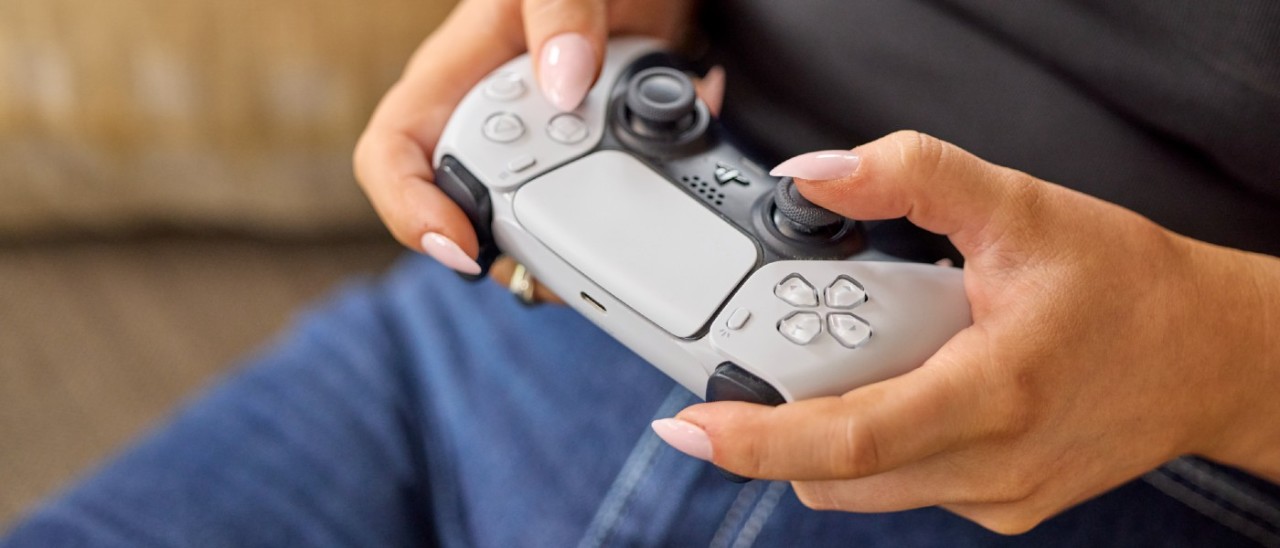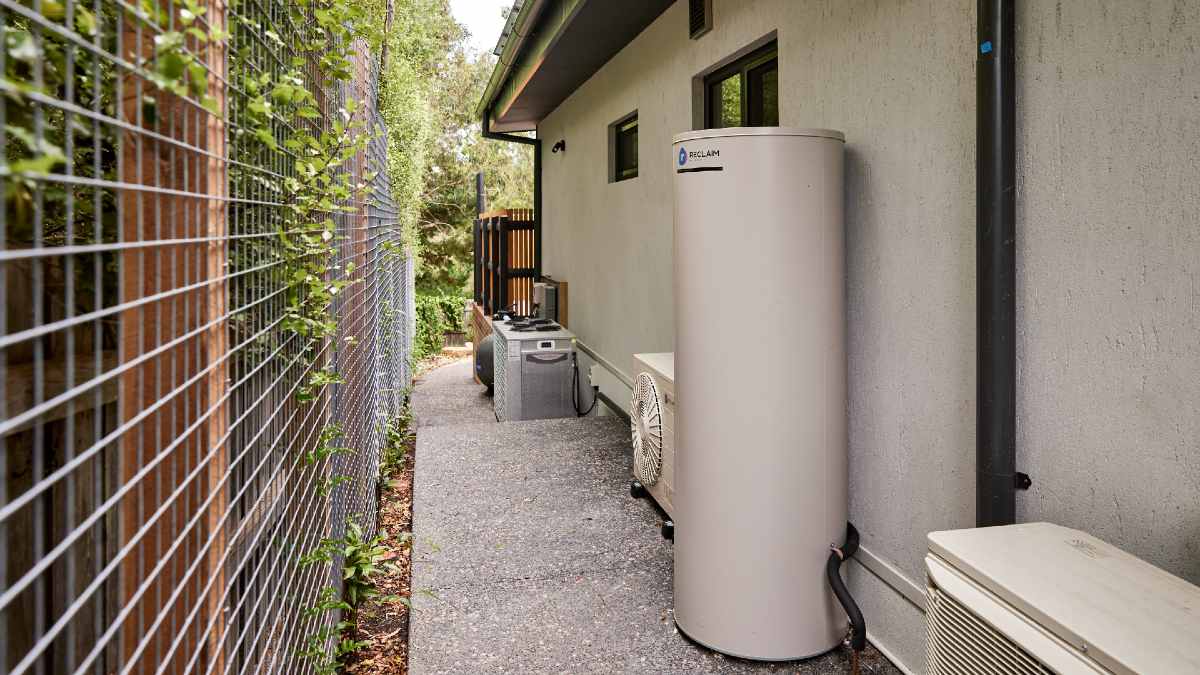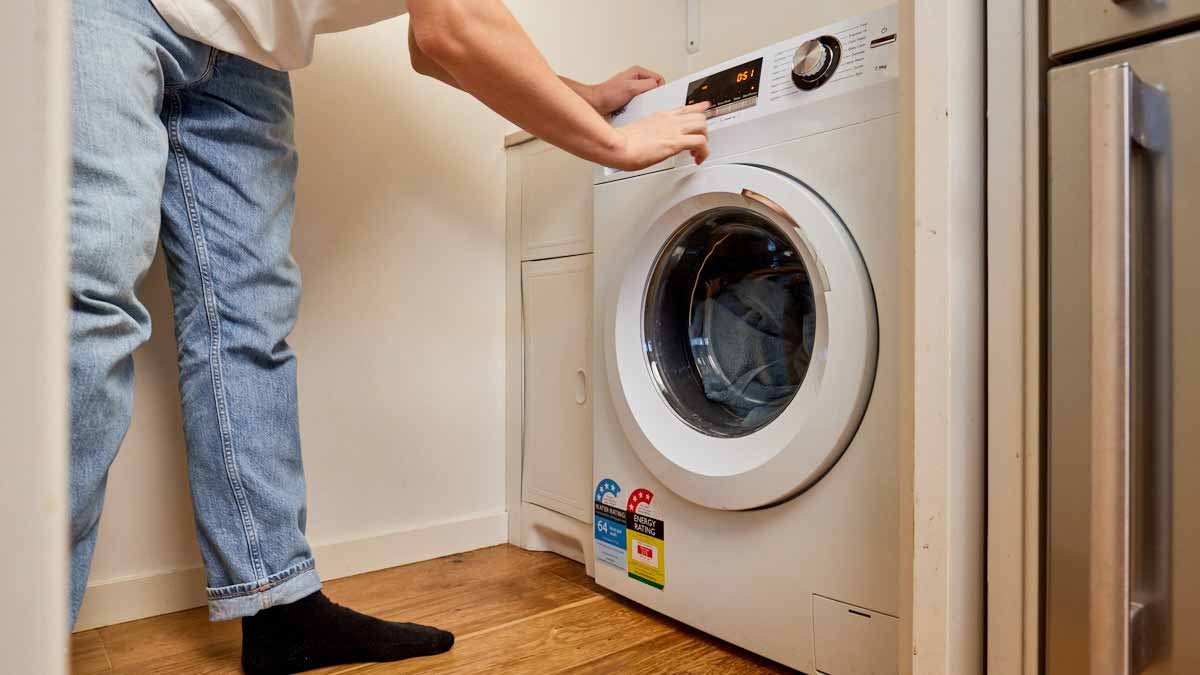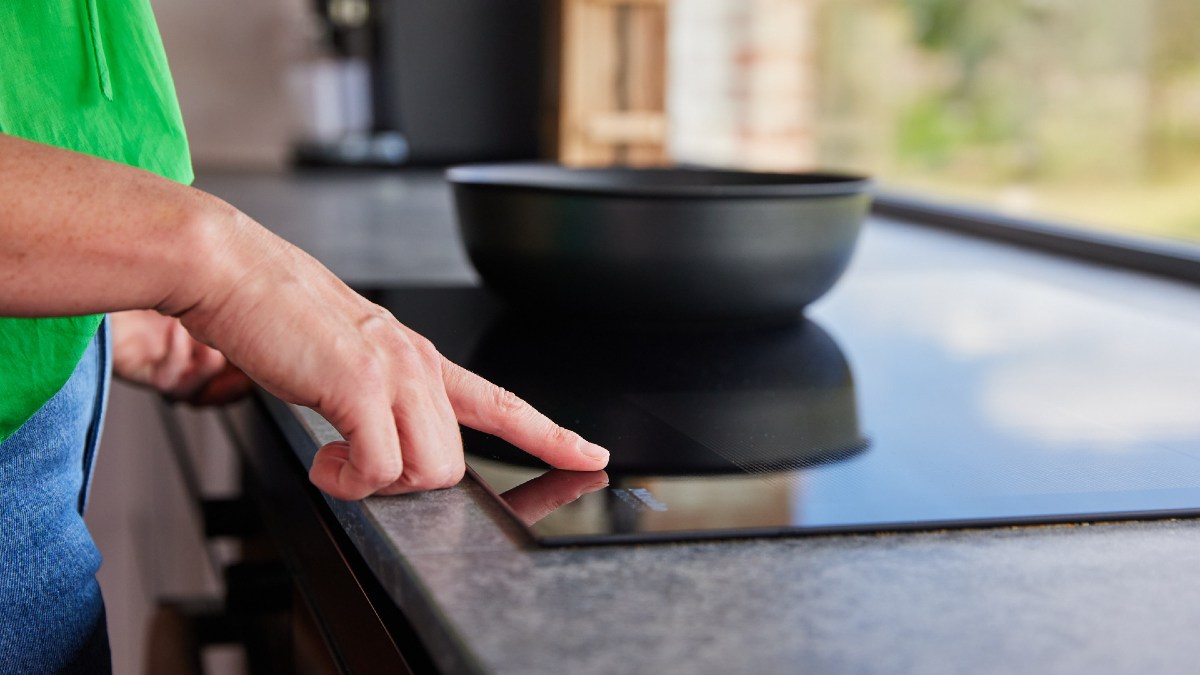Discover how to convert your home from gas to electricity. Learn about the benefits, costs and rebates about going all-electric in Victoria.
The household appliances that use the most power

If you want to reduce your energy bills, check your household for hidden energy hogs that eat up more than their reasonable share of power and contribute to wasted energy.
Cutting household energy isn't about sacrifice; it's about precision. Energy bills don't itemise expenses like bank statements or credit card bills - but there are ways to figure out which appliances, systems and habits contribute to higher energy bills.
Most energy-hungry appliances heat, cool or run motors for long periods (for example, fridges and pool pumps). By tackling these appliances first, and pairing them with basic home efficiency measures like draught-proofing and insulation, you'll get a home that's potentially cheaper to run.
When upgrading old household appliances, check the Energy Rating Labels when considering new models to determine whether they are energy efficient or not. The higher their star rating, the more efficient they are.
Want more tips on saving energy?
Top energy hogs in your household
Heating and cooling
For many Victorian homes (especially in cooler months), heating and cooling dominates energy bills. In fact, heating and cooling accounts for about 40 per cent of household energy use, according to the Australian Government's Department of Climate Change, Energy, the Environment and Water (DCCEEW).
What drives high heating and cooling usage
- Old or inefficient ducted gas systems or electric resistive heaters
- Heating or cooling the whole house when you only need a few rooms
- Overheating/overcooling rooms or running systems for too long
- Poor home insulation: draughts, single-glazed windows, thin or missing insulation
How to save on heating and cooling
Seal the leaks. Draught-proof doors, windows, skirting boards and wall vents. Even simple door seals and closed-cell foam strips can reduce heat loss and improve comfort, so your heating-cooling system can run less and cycle off more often.
Insulate and shade. Almost 60 per cent of homes in Victoria either have no ceiling insulation or are under-insulated, according to the Victorian Department of Energy, Environment and Climate Action (DEECA), which estimates many households could save about $400 a year on their annual energy bills by upgrading their insulation. Consider installing high R-value insulation if yours is old or patchy. If accessible, consider wall and underfloor insulation as well. In summer, external shading, awnings and well-placed trees can cut heat gain. Thermal curtains can help keep the house warm in winter and keep the heat out in summer.
Choose efficient heating-cooling systems. For most homes, a reverse-cycle split-system (heat pump) offers the best year-round efficiency for heating and cooling. If you have ducted heating, keep ducts sealed and insulated.
Use zoning and timers. Heat or cool only the rooms you’re using. Close doors to unused spaces. Set schedules so systems aren't running while you're asleep or away.
Set sensible temperatures. Aim for 18-20°C in winter and 25-27°C in summer. Each degree of extra heating or cooling can add up to 10 per cent to your energy use, according to the DCCEEW.
Priortise ceiling fans. They use a fraction of the energy of air conditioning and can make a room feel cooler in summer. In winter, reverse the fan to gently push warm air down.
Maintain regularly. Clean filters every few months and have air conditioners regularly serviced to keep efficiency up.

Heating and cooling tend to dominate energy bills. Image: Getty
Hot water
Heating your hot water can account for more 20 per cent of your household energy use, according to the DCCEEW. Try to avoid using the shower to get warm in winter. Aim for a four-minute shower. Older electric storage tanks and continuous-flow gas units can be costly to run, especially if the thermostat is set too high.
Hot water storage systems in residential buildings must be heated to at least 60°C to prevent harmful bacteria like Legionella, according to the Government website, Your Home. However, as water at this temperature can cause burns within five seconds, the delivery temperature should be reduced to 50°C using a tempering or thermostatic mixing valve. By law, all new systems in residential settings must have a tempering valve to ensure tap water is 50°C.
What drives high hot water usage
- Inefficient water heaters
- Long showers and high showerhead flow rates
- Heat loss from uninsulated pipes and tanks
- Running hot water for small tasks that don't need it
How to save on hot water
Upgrade to a heat pump hot water system when your current unit nears end of life. Heat pumps can use a fraction of the energy of resistive electric systems and can be timed to run during solar-rich hours if you have panels.
Install efficient showerheads. Modern low-flow shower heads can cut hot-water use dramatically. The DCCEEW reports that a four-star rated showerhead could save a family of four around $315 a year on water bills. There would also be savings on energy bills, because less water would need to be heated.
Use cold water where practical. Laundry loads, hand washing and many cleaning tasks work fine with cold water and modern detergents.
Leverage timers and tariffs. If you have solar panels, run your heat pump hot water system during the middle of the day. On time-of-use tariffs, shift heating cycles to off-peak.

Opt for an efficient hot water system, like a heat pump model.
Refrigeration
Fridges are particularly large power consumers if they are not highly energy efficient, because they need to remain on 24/7. A second fridge - especially if it's old or in a hot space like the garage - can double the cost.
What drives high refrigeration usage
- Old, inefficient units with poor door seals
- Overcooling (thermostat set too low)
- Multiple fridges/freezers when one would do
How to save on refrigeration power
Upgrade to a high-efficiency model. If your fridge is over ten years old, it may be time to consider a new fridge. When purchasing a fridge, buy the model with the highest energy star rating that you can comfortably afford. Make sure it isn't too big for your needs: owning a larger fridge than you need uses extra energy to cool the unused space.
Position your fridge well. Keeping fridges in hot, stuffy spaces requires more power to keep their contents cool. Keep it away from ovens, dishwashers and direct sunlight. Allow adequate airflow behind and beneath as recommended by its manufacturer.
Set temperatures correctly. Your fridge should be set to 3-5°C and your freezer to -15 to -18°C. Warmer than that risks food safety; colder wastes energy.
Maintain seals and defrost. Replace cracked seals and manually defrost chest freezers when ice buildup exceeds five millimeters.
Rethink the spare fridge. Turning off a second unit can save a few hundred kilowatt-hours a year.

Fridges run 24/7, so it's important to get an energy-efficient model. Image: Getty
Clothes dryers and washers
Modern washing machines and clothes dryers are a lot more energy efficient these days, but inefficient usage can waste a lot of power at once.
How to save on clothes dryers and washers
Wash clothes in cold water. Washing clothes with cold water can save up to 10 times more energy than a warm wash, according to Sustainability Victoria, making cold washes far more economical for regular loads. Modern detergents are designed for it and cold cycles better protect fabrics.
Line-dry by default. Clothes dryers can be useful, but a clothes airer can work just as well without costing you a cent. It also preserves your clothes, as the heat involved in tumble drying can damage delicate fabrics and shrink clothes down a size.
Choose a heat-pump dryer. If you need to dry your clothes with a dryer machine, opt for a heat-pump model. They cost more upfront but use far less energy than vented or condenser models.
Clean filters and ducts. Clogged lint filters forces longer runs and can even be a fire hazard. Check and clean your filters after each wash cycle and dry cycle.
Lighting
Lighting only accounts for about five per cent of household energy use according to the DCCEEW - but homes with many downlights can still rack up energy if they don't use LED bulbs.
How to save on lighting
Switch to LEDs. Quality LEDs last much longer and consume up to 75 per cent less energy than older-style bulbs, according to the DCCEEW. Switch to LED lightbulbs to easily save money without sacrificing brightness or longevity.
Use smart controls. Consider motion sensors for hallways and outdoor areas; dimmers in living rooms; and smart schedules so lights aren't left blazing.
Mind the downlights. Older recessed fixtures can compromise insulation. Consider IC-rated LED downlights that allow insulation to be continuous.

Where possible, line-dry rather than using a clothes dryer after washing.
Cooktops and ovens
Gas cooktops are common in Victoria, but induction cooktops are a popular alternative. Induction cooktops heat food faster, are safer than gas and electric stoves, and highly energy efficient, according to Solar Victoria. Ovens - especially older, uninsulated models - can be energy-intensive too.
How to save on cooktops and ovens
Invest in an induction cooktop. Induction delivers heat directly to the pot, wastes less energy to the room, and boils water quickly.
Use lids and keep oven seals maintained. Trapping heat reduces cook times and energy waste. Heat loss means longer cook times.
Use small appliances for small jobs. Air fryers, pressure cookers and benchtop convection ovens can be more efficient for smaller, quicker meals. A microwave also uses far less energy than an oven for reheating.
Standby power
All appliances plugged into a power point will consume some electricity, unless the power point is switched off. Modern TVs, sound systems, game consoles, computers, printers and modems sip energy even when you're not using them.
How to save on standby power
Understand what standby means. When you are finished with your computer or games console for the day, you can choose between standby (also called sleep or rest mode) and shut down. Keeping gadgets on standby continues to draw power as they perform updates, downloads and charging in the background.
Unplug devices after use. Even when turned off, devices need electricity to power LED status lights (e.g. a small red light to indicate the device being off), sensors needed to receive remote signals (for example, a television remote control), and other sneaky power pulls. The only way you can guarantee that devices are not using energy is to manually switch off the power point.
Enable sleep settings. Shorten screen timeouts and set PCs and monitors to sleep after inactivity. Shut down unused laptops instead of leaving them idling.
Pool and spa pumps
Pools and spas are great for recreation and relaxation, but their pumps and heaters are among the heaviest continuous users of electricity (and gas, for spa heating).
How to save on pool and spa pumps
Install a variable-speed pump. Run it at the lowest speed that maintains water clarity. Slow and steady is more efficient than short, high-speed bursts.
Optimise run time. Many pools are over-filtered. Start at four to six hours a day outside of peak usage and adjust based on water quality and season.
Use covers religiously. A good pool or spa cover helps prevent evaporation and heat loss, cutting heating and pump time. It also protects the water from debris, making cleaning easier.
Heat smartly. If you must heat a pool or spa, a heat pump usually performs better than resistive electric models. Pair run times with midday solar generation if you have solar panels, or else run the pump during off-peak energy demand.

Induction cooktops require less time to cook food and help conserve energy usage.
Trim energy bills with smart timers, tariffs and solar
Even without major upgrades, a smart approach can help trim power bills.
Use smart timers, meters and monitors
Smart plugs and power boards can cut standby loads and automate routines - for example, switching off TVs and gaming consoles overnight.
Try using an energy monitor to understand where and when your household expends the most energy. Smart meter data reveals when applicances are running, helping identify any inefficiences. Clip-on sensors and smart plugs show real-time usage, making it easier to catch energy hogs.
Understand your tariffs
Energy retailers often use 'time of use tariffs'. These are variable rates depending on the time of the day, so that you pay more during high energy demand periods.
Avoid paying higher tariffs by scheduling hot-water heat pumps, pool pumps, dishwashers and washing machines to run duringoff-peak periods (typically weekends and later in the evenings).
Invest in solar power
A rooftop solar system can power your household appliances using solar energy, allowing you to purchase less energy from your retailer. If you have solar, try to run flexible loads (laundry, dishwasher, hot water heat pump, pool pump) during daylight to maximise savings.
A solar battery can maximise your solar investment, allowing to store excess solar energy to use at night. The best returns are typically in the evening, when peak tariffs are high and your usage is substantial. Solar batteries can also add resilience during power outages.
Curb behavioural waste
A simple way to cut down on costs is to curb habits that use energy.
Are you guilty of leaving lights on in rooms you're not using? Do you sometimes fall asleep in front of the TV? Have you stared into an open fridge for minutes on end, deciding what to eat? Would you rather turn on the heater than pull on a jumper?
These habits are called behavioural waste, and can contribute to excess power consumption, resulting in higher electric bills.

LED lightbulbs are the most energy-efficient lighting option. Image: Getty
Gas versus electricity: what's cheaper?
Many Victorian homes rely on gas for heating, hot water and cooking. But electrification (switching to efficient electric alternatives) can help lower running costs and emissions, especially when paired with solar. Going all-electric puts around $880 per year back in the pockets of new homeowners, or about $1,820 with solar installed, according to the Victorian Department of Energy, Environment and Climate Action (DEECA). For an existing home with solar panels, DEECA says converting from gas to electricity can save around $2,000 a year on energy bills. This is in addition to around $740 of annual savings from an existing 6.6 kW solar system.
For the quickest savings, start with heating/cooling (reverse-cycle), then hot water (heat pump), then cooking (induction). Upgrading major appliances may require a switchboard review - an electrician can advise on circuits and safety switches.
If you do use gas appliances, book regular servicing and carbon-monoxide testing, especially for space heaters.


